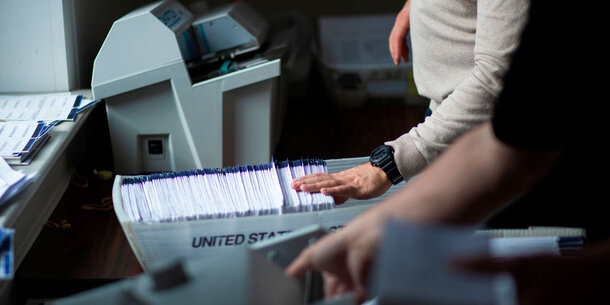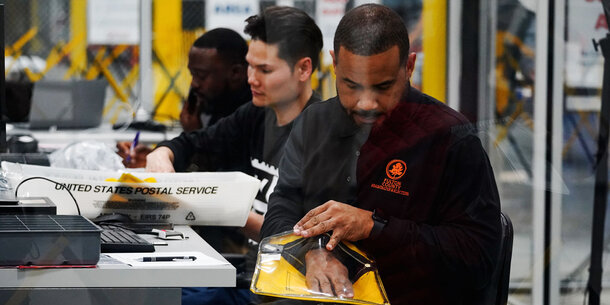You’re reading The Briefing, Michael Waldman’s weekly newsletter. Click here to receive it every week in your inbox.
UCLA law professor Richard L. Hasen has called U.S. v. Trump the most important criminal case in American history. I think he’s right. Donald Trump will be the most significant person to ever stand trial for attempting to undermine American democracy.
The indictment paints a damning picture. Trump launched a campaign of lies: That tens of thousands of dead people voted in Georgia. That noncitizens swung the election against him in Arizona. That there were more votes than people in Pennsylvania. That votes were double counted in Nevada. That there was a “dump” of illegitimate ballots in Michigan. Lies, lies for every battleground state.
Trump’s lawyers claim, among other things, that he believed these delusions, so he could not have broken the law. But nearly every person he relied on before the election told him these claims were false. His attorney general. His most ardent supporters in state legislatures. The director of national intelligence. The vice president of the United States. Trump assembled an entirely new group of lawyers — “team crazy,” some called them — because his existing advisers unanimously rejected his lies.
In any case, this defense won’t necessarily go far. A person may convince themself that the money in a bank vault is theirs, but that doesn’t give them the right to rob the bank.
According to the indictment, Trump organized fraudulent slates of electors in seven states. His team even lied to some of those people, falsely assuring them they would not be deployed unless he prevailed in court. He then used the phony electors to try to leverage his vice president to reverse his election defeat.
We all know what happened next. But U.S. law does not require that a conspiracy succeed to be prosecutable.
Brennan Center experts have offered important analysis and commentary, and we’ll have more to say as the case unfolds. My colleague Ian Vandewalker argued that the indictment represents another rejection of election denial, following Trump’s defeats in court and voters’ repudiation of the conspiracy theory in the 2022 midterms. Elizabeth Howard touted the prosecution as an important signal of support to election officials. Many suffered threats to themselves and their families, and this indictment vindicates their honesty and dedication. Sean Morales-Doyle and Gabriella Sanchez explained a law known as Section 241, which dates back to the Reconstruction era. Originally part of the Ku Klux Klan Acts, which aimed to protect Black voters from the domestic terror group, the law has more recently been used to prosecute those who stuff ballot boxes or attempt to bribe voters. It’s appropriate for the allegations against Trump, whose actions would have effectively disenfranchised millions.
Lauren Miller and Wendy Weiser make a point that should ring throughout this election season: Trump’s gambit failed in 2020, but it gave rise to an “always on” campaign of voter suppression and election subversion that continues to this day. State legislatures have passed laws that restrict the right to vote and open the door to partisan interference in elections. These laws are inspired by many of the same wild falsehoods as Donald Trump’s alleged conspiracy to undermine our democracy. At the bottom of all of this is the Big Lie.
When Judge Tanya S. Chutkan gavels the court to order, Donald Trump won’t be the only one standing trial. The Big Lie itself will be put to the test. Free of social media bubbles or the obfuscation of media pundits, we will see how poorly the election denial movement stands up to scrutiny. It’s a big moment for democracy.



